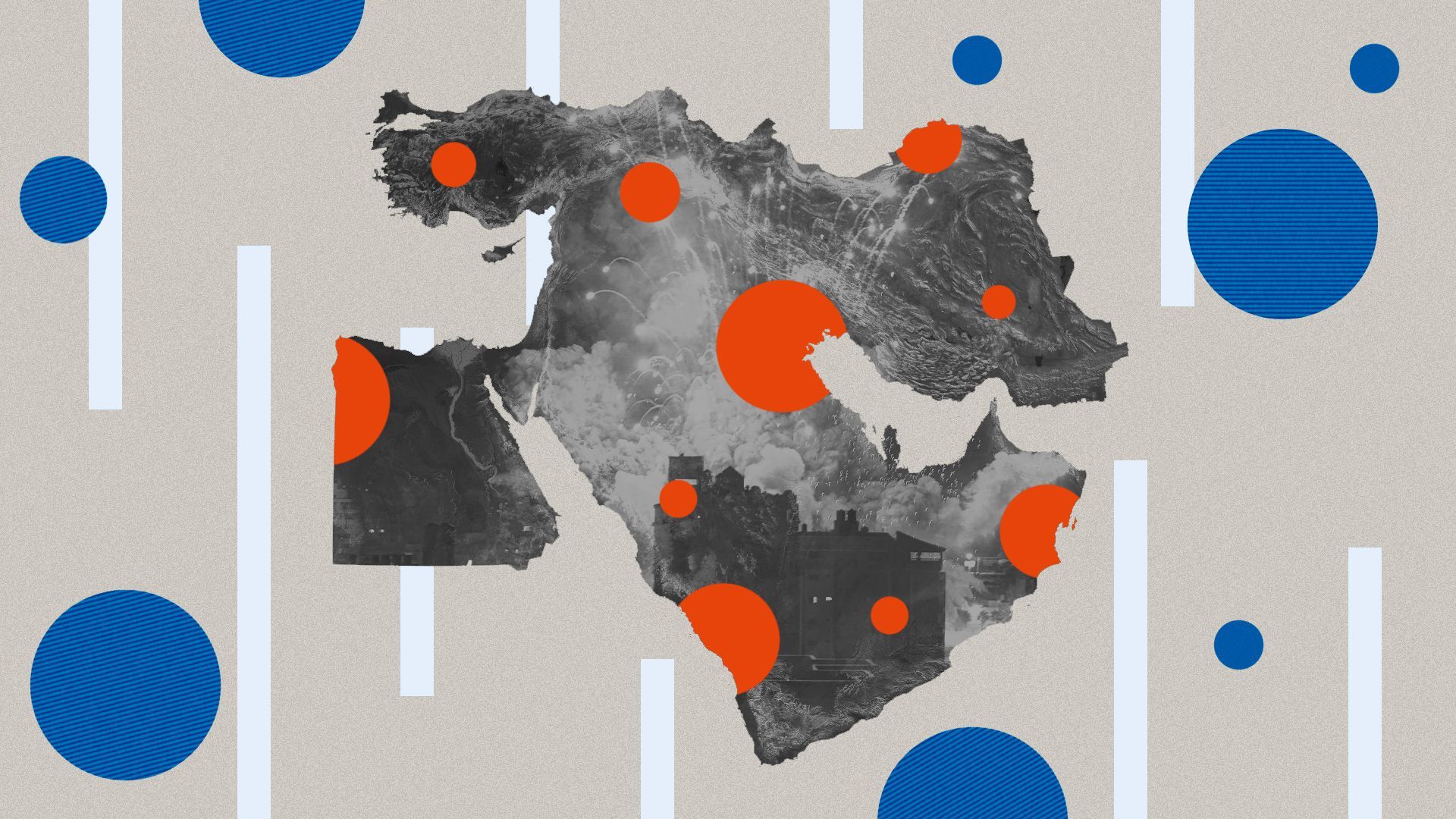Bethany Allen-Ebrahimian

China's clout is growing in the Middle East, where the U.S. wants Beijing's help to stop the war in Gaza from turning into a larger regional conflict.
Why it matters: Beijing's leverage with Tehran, a key backer of Hamas and Houthi rebels in Yemen, means China could play a unique role as regional peacemaker.
- The U.S. is concerned about China's sway in the region, but needs that influence now as Washington's efforts to reduce violence haven't worked.
Driving the news: National security adviser Jake Sullivan met with Chinese Foreign Minister Wang Yi Friday and Saturday in Thailand to discuss the Houthi attacks in the Red Sea.
- The meeting's goal is to "maintain strategic communication and responsibly manage the relationship" in keeping with the commitments made at APEC in November, the White House said in a statement on Thursday evening.
What's happening: Key shipping routes through the Red Sea have been brought to a standstill in recent weeks by attacks on ships by Houthi rebels in Yemen in protest of Israel's ongoing military operation against Hamas in Gaza.
- The Houthis are continuing the attacks despite U.S.-led coalition strikes, raising fears of a broader conflict even more.
- Beijing has a close relationship with Iran, which is shut off from much of the global economy due to U.S. sanctions and is dependent on trade links and oil sales to China.
That's why the U.S. is leaning on Beijing to press Iran to urge Hamas and the Houthis to cease their attacks."
- China has influence over Tehran; they have influence in Iran. And they have the ability to have conversations with Iranian leaders that—that we can't," National Security Council spokesman John Kirby said on Tuesday at a media briefing.
- "What we've said repeatedly is: We would welcome a constructive role by China, using the influence and the access that we know they have, to try to help stem the flow of weapons and munitions to the Houthis."
Background: The Chinese government has increasingly sought to portray itself as a Middle East peacemaker and a superior alternative to the U.S. overall as a regional partner.
- China helped arrange a detente between Iran and Saudi Arabia last year, a move that Sullivan said at the time was "not fundamentally averse to U.S. interests."
- After the Oct. 7 attacks and the outbreak of war between Israel and Gaza, China offered to help broker a peace between Israel and the Palestinians, but has not taken substantive steps towards doing so.
What to watch: Chinese officials have asked Iran several times in recent weeks to push the Houthis to stop attacking ships, or else face consequences in the trade relationship with Beijing, Reuters reported on Friday.
- If Houthi attacks continue, moves by Beijing to restrict some business ties to Iran would show that China is really putting its money where its mouth is on Middle East peace-making.
No comments:
Post a Comment